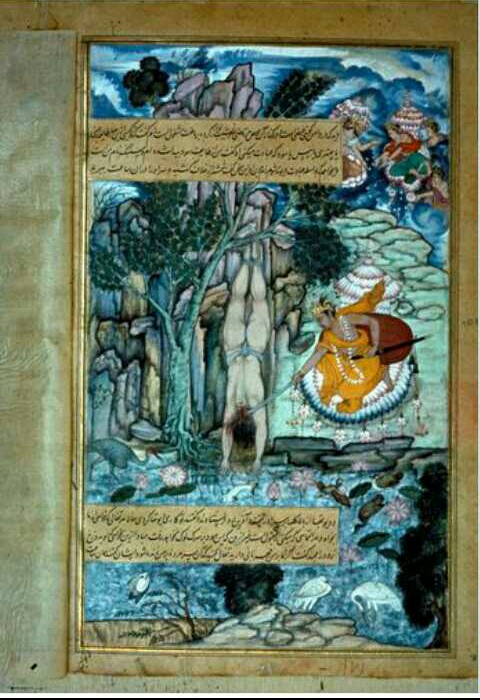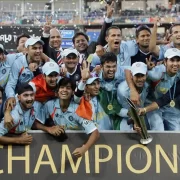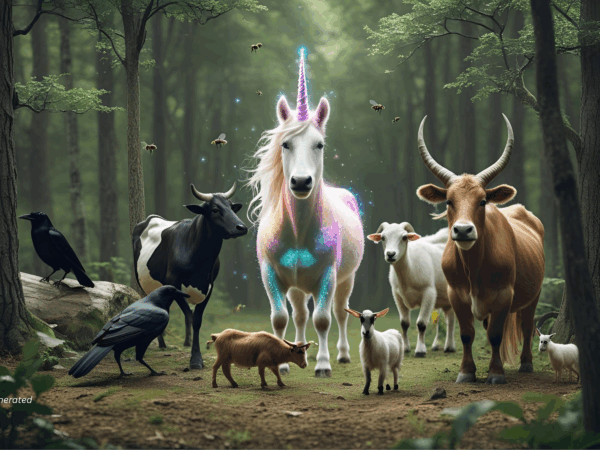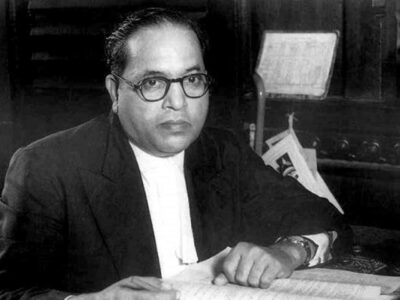A friend of mine challenged me to summarise Hindu thought in 3 words.
I used one: caste, and it was enough. That defines modern Hinduism in every way one can think of.
Without caste, there is no Hinduism.
That really is the end of the topic. However, for the benefit of those who want to know how I arrived at this, let me develop on that below:
Hinduism’s three unshakeable tenets, which every branch, sect, and variation agree on are:
1. Varna Vyavastha, a.k.a, casteism
What you are born into is what you are. That there are “professions” you inherit. That nothing you do can change that.
That if you were to attempt to cross over, you are a sinner and even the person seen as poorna purush (the complete man), Lord Rama, mythical as he may be, will behead you (yes, you read that right; not punish, not even the simple kill, but specifically behead) publicly for ‘disturbing the balance of the universe’.
Caste is not only ingrained in Hindu society, it forms the very basis of Hindu thought and action, including spirituality. In fact, Hinduism didn’t start out as a religion in the classical sense (something Hindu apologists never fail to point out) but a mix of pagan rituals and traditions, with the only binding glue being the notion of caste. There were only castes and animalistic tribal rituals that later amalgamated into a religious philosophy (as these rituals and rites became ‘tradition’ and the ‘way of life’ became religion) that today’s common practising Hindu knows as Hinduism, with casteism at the core of it.
This has been the evilest, most oppressive, and dehumanising institution in any religion, making even the concept of slavery seem like a kindergarten game.
2. Rebirth and Moksha
This is a corollary to the above, and in conjunction to the below.
Living beings are in a constant cycle of rebirth, life, and death, with the ‘soul’ being immortal.
The idea of living is to die once and for all, and find heaven at the feet of the lord, in effect achieving a break from this cycle and attaining permanence (in death, mind you, not life).
For this purpose, all actions performed by believers are said to be for the hereafter, where the ultimate reward would be a permanent death (go figure).
3. Karma
That there is someone or something that keeps score of all the actions and deeds of the living, even beyond their lives (refer ‘rebirth’ above) and in fact, even beyond their own specific life (even the actions of relatives and ancestors are counted), and using this scorecard, rewards or punishes one, in some life not currently clear.
This means that morality flows from the fear of punishment or greed for rewards in this life or beyond, or even someone else’s life connected to the believer by blood, now, or in the past or the future.
This clearly shows Hinduism’s claim to ‘not being a religion’ (at least as it is practised now) to be fatuous, because it resembles a religion in every way: a belief in a supernatural entity, claims of life after death, an invisible scorekeeper/umpire who punishes/rewards, a designated priestly class, organised social order with death penalties for attempting to escape the hierarchy, fantastical claims about the origin of the universe, and a thin skin for any slights, real or imaginary.
So, kindly spare me the talk of Hinduism not being a religion but a way of life, because it is a religion in every sense. And if indeed it is a way of life, it is a pretty shitty way to live.
As for those who claim that one can believe in all sorts of woo like Rebirth and Karma without having to be Hindu, I agree 100%. As you can see, caste and belief in caste is the only necessary and sufficient condition to be a Hindu, while all others are necessary, but not sufficient. My single-word definition now makes even more sense.
Also, some streams of thought within the Hindu philosophy, like the materialistic Carvaka, for example, do not believe in rebirth or karma. That is why when someone asks me to define the core beliefs of Hinduism, I go with just caste, which has been undisputed and every sect remains firmly united behind it!
That being said, those that throw the materialism of Carvaka, Samkhya, and Mimansa at me can kindly fuck off. Ditto those who point out to Hindu practice from a thousand and more years ago, to so-and-so king being from this caste and so-and-so saint being from that caste. Spare me the history lessons, because (a) much of what the apologists want to pass off as real history comes with a huge bias, and (b) how does it matter whether the Nandas of 4th century BCE were lower caste kings or the Chandelas of 9th century CE were tribal? We are concerned with today’s Hinduism and how it has been shaped over history. In 2016, today’s Hindu religion has nothing to do with your esoteric philosophies. Today’s Hindu worships gods and idols, believes in rebirth and karma, and is firmly entrenched in his/her caste. Your high-sounding and nuanced philosophies are as far from today’s practising Hindu as Aquinas’s are for today’s practising Christian. Also, not to put too fine a point on it, these (materialistic) philosophies were never much popular, and in every myth and legend, the followers of these outlying philosophies have been ‘defeated’ by the representatives of more mainstream ideas and muscular Hinduism.
Apologists have also spoken of how Hinduism is a living religion and how it changes and mutates to fit any given time and zeitgeist. I disagree. If indeed it mutates, then it does so rather slowly, and is way behind the leading edge of morality, even if the very least we are told (by the faithful) to expect of a religion is for it to be a moral force for good. Why would I want to take this badly formed, disgustingly twisted, dark, and immoral thing and then clean and polish it up to adhere to today’s morality so I could claim that the Hindu faith evolved to keep up with the times? If I do not need religion to teach me what is right and wrong, but for me to decide what is right and wrong independently, and then mould my religion according to that morality, which I arrived without the help of my religion, why the hell do I need religion at all?
Just jettison the whole damn thing and decide what is right and wrong without the crutches, as you are already doing! If we are not using our religion to teach us morality, but we arrive at our morality outside of and in spite of it, and then incorporate and retrofit it into our religion post ipso facto, of what use is such a waste of time, energy, and bandwidth? Better we skip the part where we invest into religious revival and renaissance and just go about living our lives without any reference to it.
tl;dr: Modern Hinduism is a religion. It cannot survive without caste. It is not a guide to our morality. We are better off without it. Ditto every other religion.



















